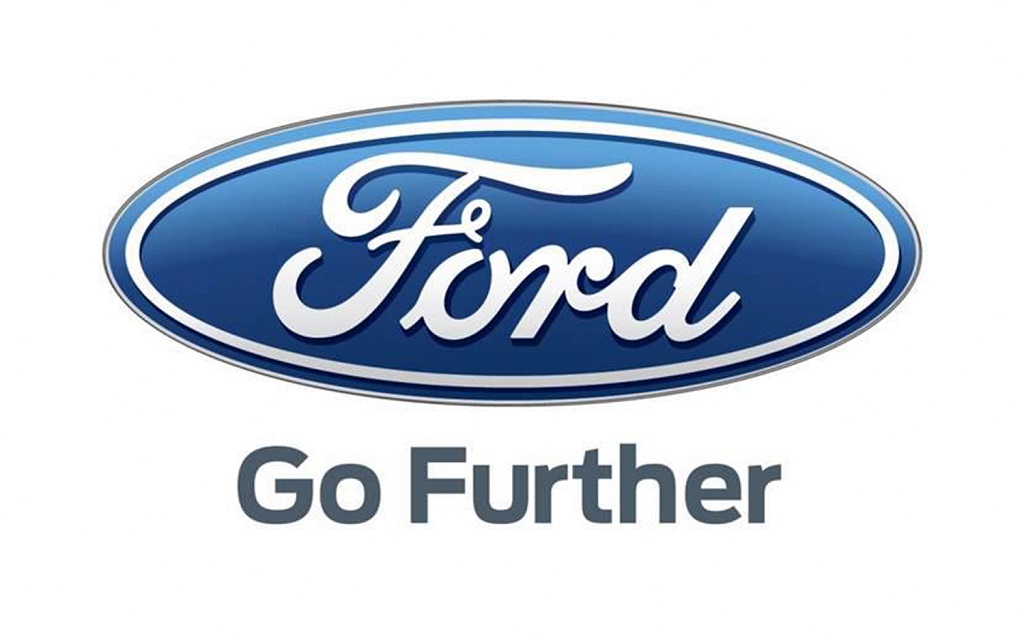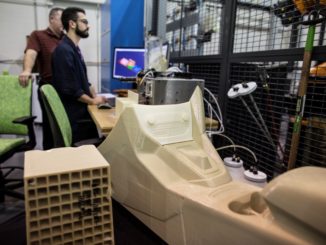- Number of women at Ford operations across Asia Pacific has risen more than 125 percent over the past five years; more women in senior leadership roles
- New telecommuting policy in China builds on female-friendly initiatives like flexible working environments, new mothers’ lounges and day care in some locations
- Ford will train thousands of Asia Pacific employees in 2017 to address unconscious bias
- New Diversity Alliance Committee, stronger leadership training and grassroots STEAM programs set the stage for a more diverse and inclusive workplace
New Delhi, March 8, 2017 – To gain an edge in the battle for talent in fast-growing Asian markets, Ford Motor Company has dramatically stepped up its efforts to promote diversity and inclusion in the workplace, including an increased focus on recruiting and training women employees.
In the past five years, Ford has grown the number of women working in its operations across Asia Pacific by more than 125 percent and increased the number of women in senior leadership roles. Ford said it’s further accelerating its efforts to diversify its workforce and strengthen its overall talent bench in engineering and other disciplines.
“Women have been traditionally underrepresented in the auto industry, especially in Asia, and we see that as a massive untapped opportunity,” said Dave Schoch, president, Ford Asia Pacific. “Recruiting and retaining the best talent is a big challenge in Asia. Increasing women in our workforce is not only the right thing to do; it’s key to winning in China and other fast-growing Asia Pacific markets.”
Key Ford Asia Pacific initiatives include:
- Ford’s leadership team in the region has made driving diversity and inclusion a core value as it is a critical enabler to innovation and business success.
- Ford has been a strong supporter of STEAM (Science, Technology, Engineering, Art and Mathematics) programs to address under representation of women in these fields of education.
- This month the company launches a new Diversity Alliance Committee that will bring together and grow a number of existing initiatives such as STEAM and Professional Women’s Network.
- As part of its commitment to a flexible work environment, Ford recently launched a new telecommuting policy in China to complement other flexibility initiatives such as new mothers’ lounges and onsite day care in some locations.
- Ford has put in place training and development programs to help prepare female employees for higher leadership positions.
- Ford has launched an unconscious bias training for the majority of its 13,000 employees across Asia Pacific. Unconscious bias is the concept that individuals have subconscious preferences for people that can unintentionally influence both behavior and decision making if not recognized, including recruitment and promotion decisions.
- Ford India is partnering with local organizations to enable returning women employees to make a smooth transition back to the workplace after a long absence, and is piloting a program called “InSight” to facilitate the female talent pipeline for higher leadership positions. These programs have helped Ford India be named as one of the ‘Best Companies for Women in India’ by AVTAR Group in 2016.
“This is a multi-year journey and there are no short cuts, but Ford’s goal is to be an employer of choice and part of that is recruiting and retaining more women to our team and giving them the tools to succeed,” said Carol He, vice president, Human Resources, Ford China.
Yolanda Wang, a body exterior manager and one of the most senior female engineers at Ford’s Research and Engineering Center in Nanjing, China, recently completed the company’s Product Development Leadership Program, which included a job rotation in the U.S.
“This program was an amazing opportunity for me to grow and develop and gain a new global outlook,” she said. “I hope many more women get to benefit from initiatives like this that make you step outside your comfort zone and try something different.”
Why diversity is good for business
As well as being the right thing to do, adapting thinking to truly reflect the global marketplace makes good business sense.
“It doesn’t matter if you make phones, fridges or cars. A more diverse workforce will allow you to make more innovative and robust business decisions that meet the nuances of different customers,” said Cindy Neenan, HR business operations director, PD Engineering and Design, Ford Asia Pacific. “If six people sit in a room and think the same way you don’t get the spark that gets the best results. That is the true value of diversity.”
As the female consumer continues to grow in importance for all automobile brands, attracting and developing female talent is critical to business success. According to Google’s 2016 Auto Shopper Study, women make up one-third of SUV buyers in China and influence more than half of car purchases by families.
“If you don’t have enough women in senior leadership, production and manufacturing roles, you don’t get the insights you need to tap into the market of female consumers,” said Neenan. “There are many examples at Ford of how these kinds of insights have led to direct consumer benefits, whether it’s smarter in-car storage solutions or cup holders that don’t spill your coffee. Every part of the car benefits from the attention of a diverse team.”
Building a strong pipeline of female employees
A Nathan Associates study in 2016, APEC Women in STEM, found that women and girls across the 21 member economies of the Asia-Pacific Economic Cooperation (APEC) forum encounter stereotypes and other cultural constraints that discourage them from aspiring to careers and leadership in STEM or STEAM fields.
To address this, Ford has been investing in STEAM programs in India, China and Australia since 2014, and is looking to expand this support to other Asia Pacific markets.
As part of Ford’s Better World effort, the goal is to encourage young men and women to cultivate an interest in STEAM fields and keep them engaged throughout the education process, from early years to senior school and university.
“Many girls lose interest in science too early at school or are not encouraged to pursue science or math streams,” said Sean Newell, Ford’s product development training and leadership development program manager for Asia Pacific.
“We want to make STEAM subjects fun and exciting so we can attract the best and the brightest talent to become the automotive engineers, technicians and designers of the future. It’s also a fantastic way for our employees to give back to the local community through mentoring programs and volunteering.”
Ford’s key STEAM programs in Asia Pacific include:
- Supporting Australia’s FIRST all-girl robotics team, providing technical mentoring for a robotics school team in Nanjing and funding a new robotics lab at an elementary school in India
- Running educational programs in schools, including English language classes and workshops on design thinking in China
- Giving Ford Blue Oval scholarships to outstanding students pursuing majors in STEAM subjects through Ford Fund, the philanthropic arm of Ford Motor Company
For International Women’s Day on March 8, Ford is holding a number of special events across Asia Pacific to celebrate and recognize the many contributions of its women leaders and employees. From engineers to designers, they are involved in every aspect of the company, upholding Ford’s commitment to quality and customer experience.



